The directorial debut of cinematographer Reed Morano (The Skeleton Twins, Kill Your Darlings) is an emotional roller coaster from its first moments as it follows a young couple in the aftermath of a horrifying tragedy. Morano keeps Meadowland hauntingly realistic; its devastating subject matter feels all too possible.
New Yorkers Sarah (Olivia Wilde) and Phil (Luke Wilson) are on a road trip with their young son, Jessie, when they stop at a roadside gas station. Jessie goes to use the restroom while his parents grab some food. When Phil knocks on the bathroom door a few minutes later, Jessie doesn’t answer. The couple begins to panic as the attendant unlocks the door. Jessie has completely disappeared. The parent search throughout the station garage and down the busy street, but the boy is nowhere to be found.
A year later, the couple is still unraveling from the loss, especially Sarah. She drinks a bit too much while on medication, wanders Times Square alone at night, and can hardly concentrate at work as a high school teacher. It’s understandable why: the sight of boys slightly older than Jessie is only a reminder of her son. She takes a particular interest in one kid, Adam (Ty Simpkins), who gets bullied daily because of his Asperger’s. The images of Sarah wandering the dark halls of the school, peering longingly at the children who reside there, is a wonderful example of Morano’s unique vision. It’s disorienting, much like the film’s narrative.
Phil, a police officer, spends time studying pictures of Jessie and going to group counseling where he meets Pete (John Leguizamo), who’s gone through a similar experience, though his marriage failed to endure to the loss of a child. While Sarah wants to imagine Jessie safe somewhere, Phil revisits the site of Jessie’s disappearance and is interested in the ongoing investigation, determined to find an answer. His troubled brother, Tim (Giovanni Ribisi), lives with the couple, and despite his long-term substance abuse, Tim is most capable of seeing the spiraling effects of Jessie’s disappearance.
The couple spends little time on screen together, each coping in a different way, both obsessive methods leading to dangerous consequences. More alarming is Sarah’s rising preoccupation with Adam. There are ultimately a few answers at the end and, despite the heart-wrenching story, a little bit of hope. The ending comes to what feels like a very natural conclusion. For good or bad, Sarah and Phil make their way to resolution alone.
Though both main performances are excellent, it’s Wilde’s film (she’s also a producer). She portrays Sarah’s declining grief and depression with skillful abandon and honesty. Without saying much, Wilde expresses so much anguish and grief that it is, at times, almost unbearable. The film also boasts an extraordinary supporting cast. Ribisi is especially sweet as the concerned brother-in-law who can see the depths of Sarah’s depression. Merritt Wever, Kevin Corrigan, and Elisabeth Moss are just a few of the actors playing small, but effective, roles. It is a shame, in some respects. Moss and Corrigan in particular stand out as Adam’s parents, though neither is given enough time to really explore their characters.
As evident from Meadowland, Morano’s stark cinematography is as striking as her storytelling.

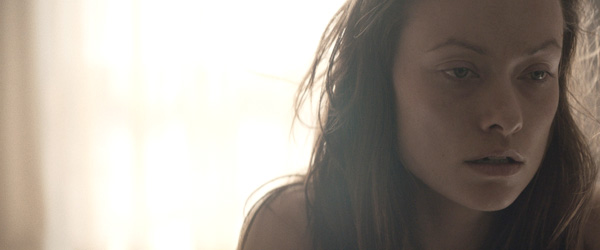
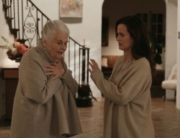
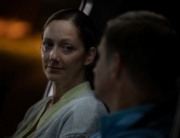
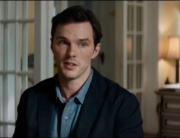
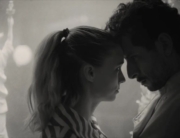
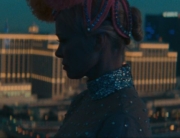










Leave A Comment